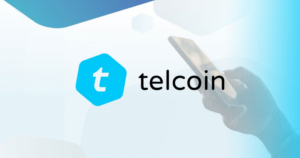Siemens’ €300 million digital bond on the SWIAT blockchain was completed in minutes

Siemens has issued a 300 million euro digital bond on SWIAT's blockchain platform. The bond was completed in minutes, a significant improvement over Siemens' previous bond. Major German banks participated, which showed a growing interest in blockchain assets.
German tech giant Siemens has issued a €300 million digital bond, its second blockchain-based bond.
The bond issued under Germany's Electronic Securities Act (eWpG) is part of European Central Bank (ECB) experiments to explore the potential of blockchain in capital markets.
Siemens made a discovery on the bond token
Siemens Digital Bond Issuance Marks Significant Growth in Bond Underwriting
A €300 million bond, with a one-year maturity, was floated on SWIAT's private blockchain platform and settled within minutes. This rapid transaction time represents a significant improvement in speed and efficiency compared to traditional methods.
In the year In 2023, Siemens issued a blockchain-based bond of 60 million euros on Polygon's (MATIC) blockchain, which took two days to settle, and within minutes the new bond deal was significantly advanced.
The bond issuance process demonstrates how blockchain technology can streamline financial transactions using the Bundsbank's automated trigger solution.
Major German financial institutions, including BayernLB, DekaBank, DZ BANK and Landesbank Baden-Württemberg, participated in this edition, demonstrating the growing interest in blockchain-based assets among traditional financial players.
The Siemens initiative not only tests the ECB's distributed ledger technology (DLT), but also sets a precedent for future digital securities.
Future prospects and industry impact
Siemens' move is in line with the European Central Bank's broader efforts to assess the integration of blockchain technology with traditional financial systems.
By issuing the bond under eWpG, Siemens is pioneering the use of electronic securities and strengthening the viability of blockchain capital markets. The bond's faster settlement time, lower costs, improved transparency and greater security achieved through a private blockchain platform suggest potential benefits.
In recent times, blockchain-based bond issuances have seen further adoption, with notable examples including the World Bank's 2018 issuance and Japan's Nomura Research Institute's 2020 issuance.
Siemens' latest digital bond reflects the continuing trend toward bond tokenization, driven by blockchain technology's promise to make transactions faster and safer.
As the industry evolves, the integration of smart contracts and blockchain technology is expected to accelerate, changing how securities are issued and traded.













